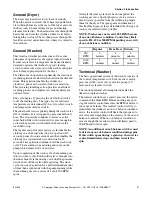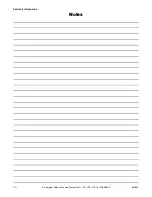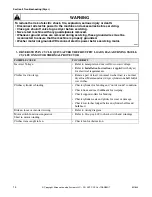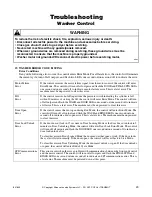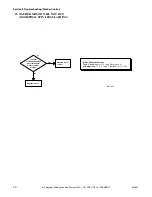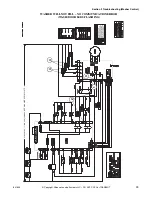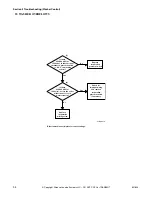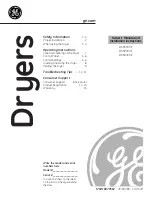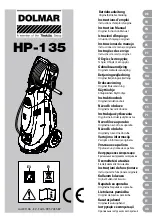
801805
21
Section 3 Troubleshooting (Dryer)
© Copyright, Alliance Laundry Systems LLC – DO NOT COPY or TRANSMIT
To reduce the risk of electric shock, fire, explosion, serious injury or death:
• Disconnect all electric power to the machine and accessories before servicing.
• Close gas shut-off valve to gas dryer before servicing.
• Never start machine with any guards/panels removed.
• Whenever ground wires are removed during servicing, these ground wires must be
reconnected to ensure that the machine is properly grounded.
• Washer motor not grounded! Disconnect electric power before servicing motor.
W502
WARNING
16. CLOTHES ARE TOO HOT WHEN REMOVED FROM DRYER
17. EXCESSIVE CHATTERING OR VIBRATING NOISE IN DRYER
18. EXCESSIVE HUMMING OR WHISTLING NOISE IN DRYER
POSSIBLE CAUSE
TO CORRECT
Improper or inadequate exhaust system.
• Refer to Installation Instructions (supplied with dryer)
for exhaust requirements.
Clothes are removed from dryer before cycle has
completed.
• Allow the dryer to complete the cycle through the cool-
down to the OFF position.
Inoperative cycling thermostat.
• Test cycling thermostat and replace if inoperative.
Inoperative timer (not allowing cool-down).
• Test timer and replace if inoperative.
Inoperative seals (air leaks).
• Check and replace any inoperative seals in the following
areas:
1. Seal between loading door and front panel.
2. Seal between front panel and front bulkhead.
3. Seal between blower cover and air duct.
4. Seal between cylinder and front or rear bulkhead.
5. Gap between air duct and filter mounting.
POSSIBLE CAUSE
TO CORRECT
Inoperative idler spring.
• Remove lower access panel. Set dryer to normal cycle and
allow it to heat to operating temperature. If the belt
vibrates as it rotates around the cylinder, the idler arm is
making the noise. Replace the idler spring. Refer to
Figure 41.
POSSIBLE CAUSE
TO CORRECT
Inoperative blower housing.
• If the abnormal operating noise is loudest at the vent exit,
the problem is originating from the blower housing.
Replace the current housing and cover. Refer to Figure 42.



